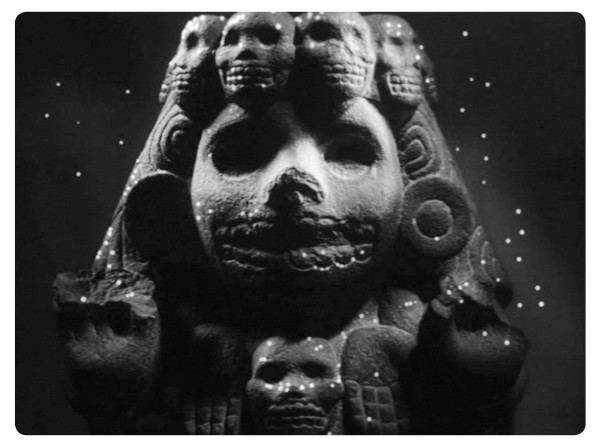Sprache
Typ
- Buch (6)
- Wissenschaftlicher Artikel (2)
- Interview (0)
- Video (0)
- Audio (0)
- Veranstaltung (0)
- Autoreninfo (0)
Zugang
Format
Kategorien
Zeitlich
Geographisch
User account
Sergei Eisenstein: Screening, Talk and Book Launch with Elena Vogman
29.06.2018, 19:00
HKW – Haus der Kulturen der Welt, John-Foster-Dulles-Allee 10, 10557 Berlin

Image: Sergei Eisenstein, ¡Que viva Mexico!, 1931–1932, film, 6–8 min. Courtesy Gosfilmofond, Moscow. | © Gosfilmofond, Moscow
With Elena Vogman, Marie Rebecchi and Anselm Franke
Between 1930 and 1932 Eisenstein worked on his film Que viva Mexico! Eisenstein never finished his film, but left nearly forty hours of footage behind. Over the years, the Mexican film became the object of repeated manipulations, the most important of which is the one that Jay Leyda—Eisenstein’s former student—made in 1955: a 225-minute film, Eisenstein’s Mexican Film: Episodes for Study. Here, the “anachronistic syncretism” of Mexican culture re-emerges in ecstatic dances, marked by circular and repetitive rhythms that accompany ceremonies in honor of the Virgin Mary. In a one-hour length screening, fragments of Leyda’s version will be shown, accompanied by a multilingual reading (English, German, Russian, French) of Eisenstein’s unpublished Mexican diaries.
Within an open structure of different disciplines such as anthropology and aesthetics, psychoanalysis and Gestalt psychology, paleontology and linguistics, Eisenstein’s work is a dynamic vehicle that operates by means of montage, emphatic criticism and eccentric transgression of its own positions. In a talk, Elena Vogmann interprets the epistemic and aesthetic vanishing lines of this thinking against the background of her new book “Sinnliches Denken. Eisensteins exzentrische Methode.“.
Elena Vogman
is an author, scholar of comparative literature and media, and curator. She wrote her dissertation on “Sensuous Thinking: Eisenstein’s Eccentric Method” and held postdoctoral research positions in the DFG-project “Rhythm and Projection” at the Institute of General and Comparative Literature at Free University in Berlin and at IKKM, Bauhaus University, Weimar. She currently teaches Media History and Theory at the Art Academy Berlin Weißensee and is working on a new project titled “Madness, Media, Milieus: Reconfiguring the Humanities in Postwar Europe.” She has published numerous articles on forms of visual thinking and montage, anthropology of rhythm and media, and milieus in practices of Institutional Psychotherapy. Together with Marie Rebecchi she curated the exhibition on “Sergei Eisenstein: The Anthropology of Rhythm” at Nomas Foundation, Rome.